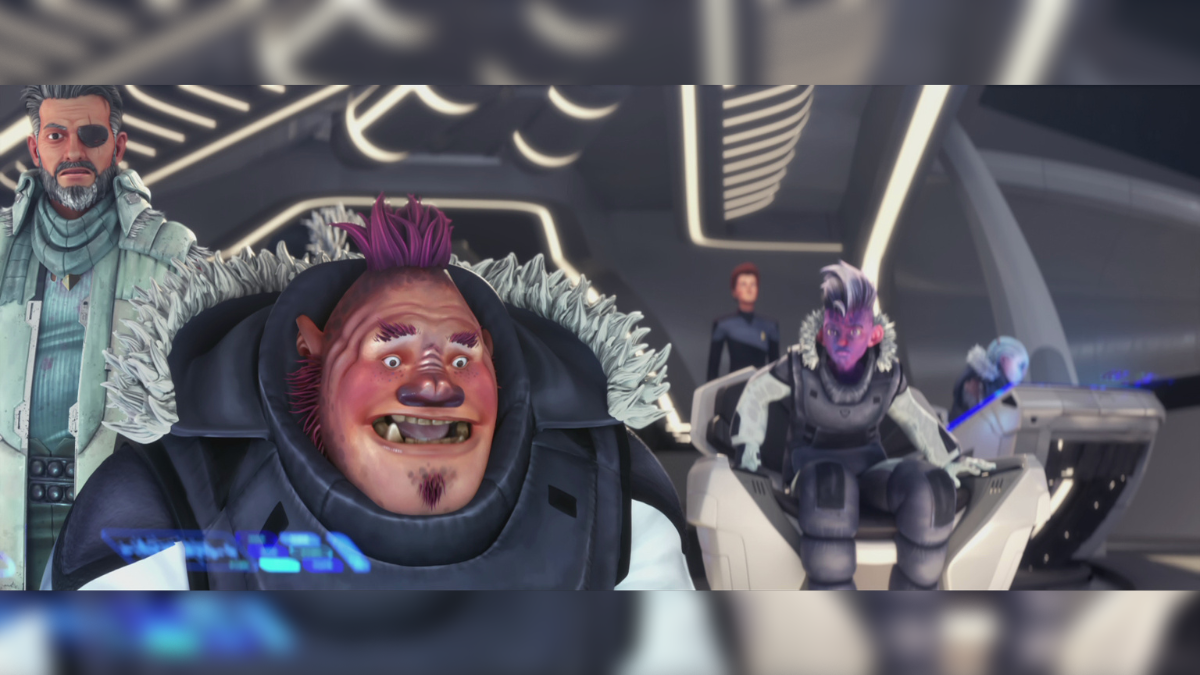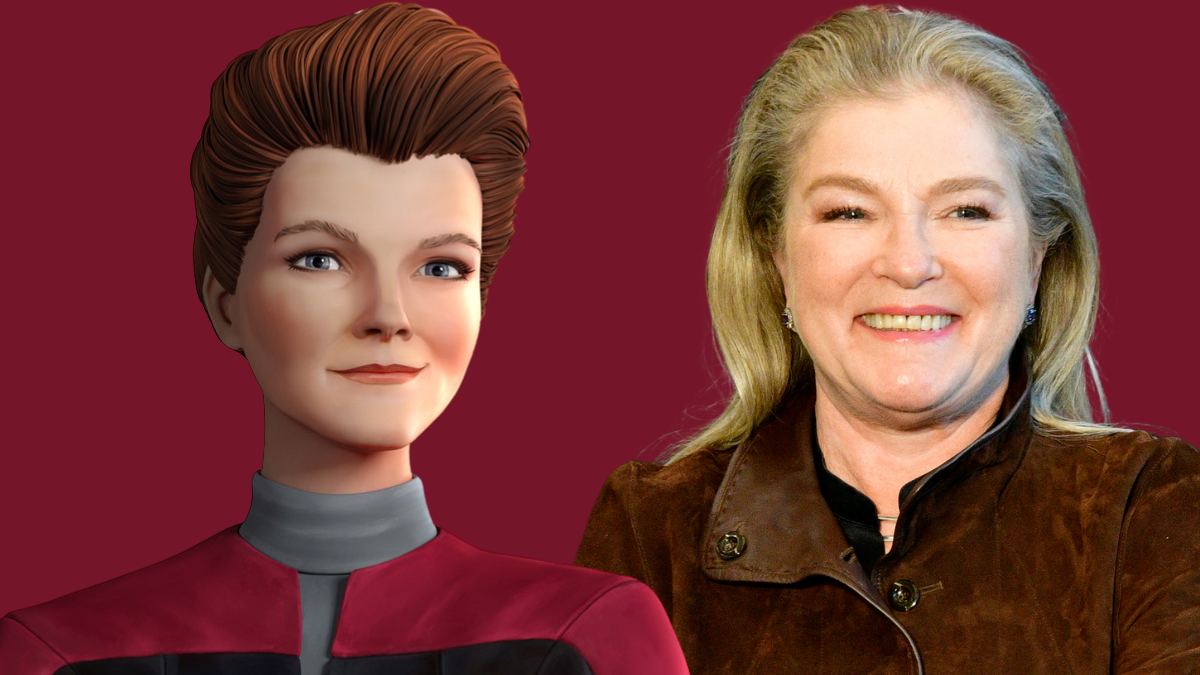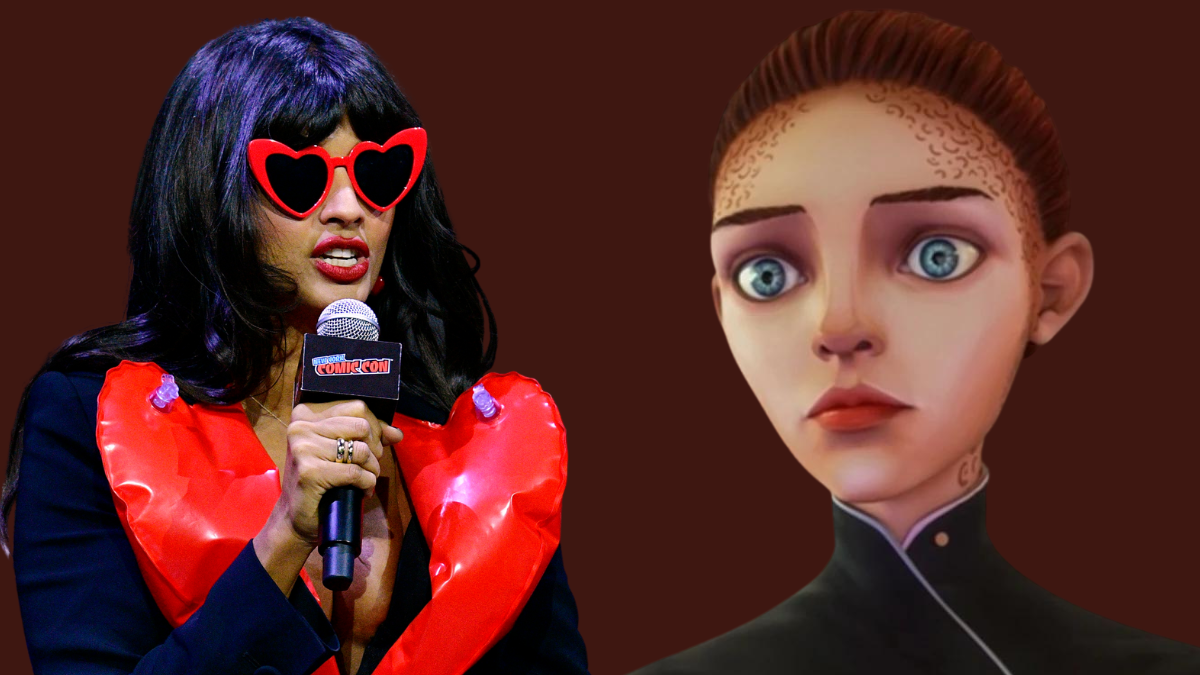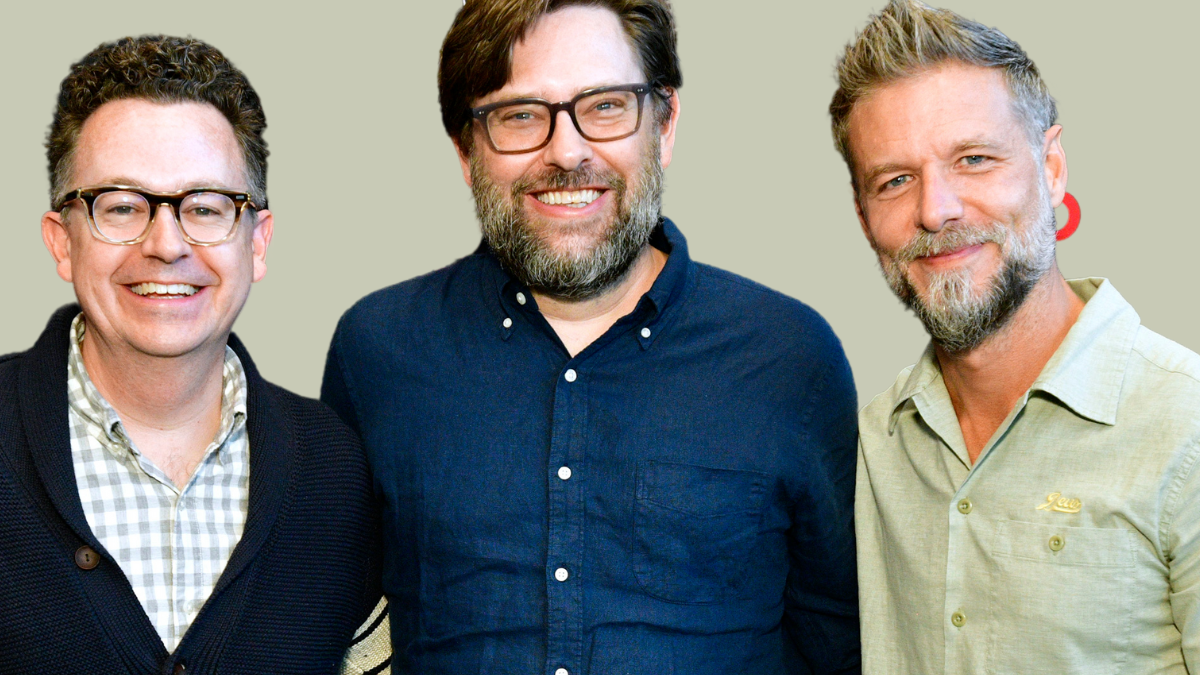NYCC STAR TREK INTERVIEWS: Brett Gray
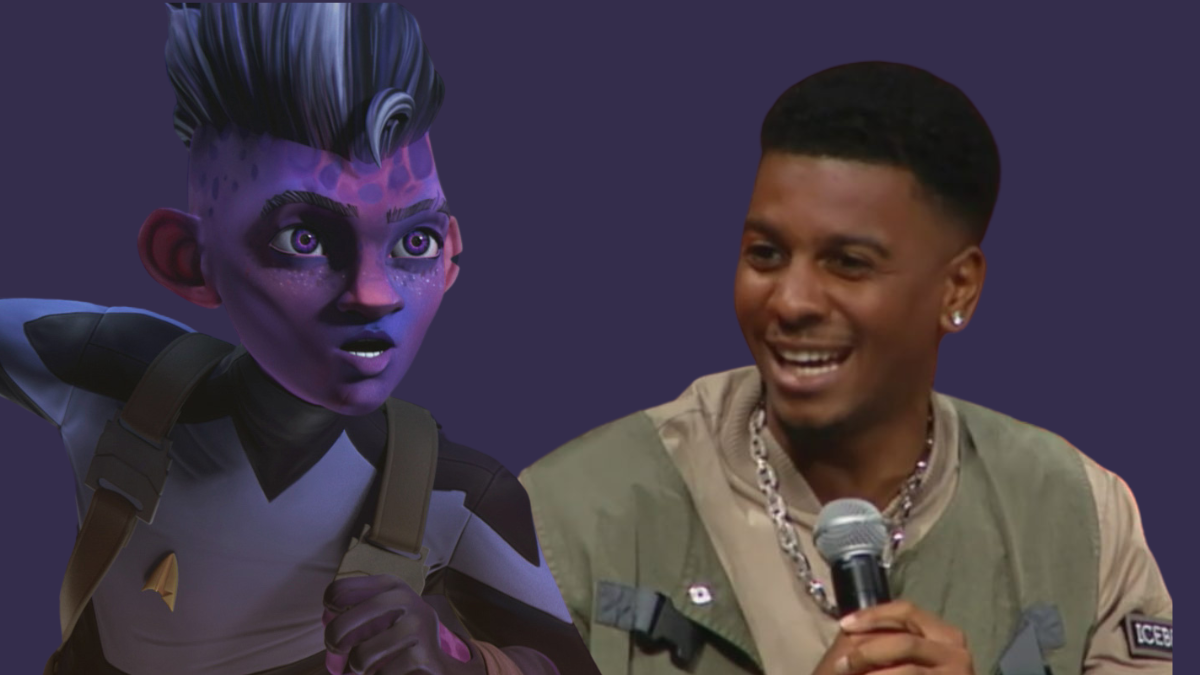
Brett Gray as Dal in STAR TREK: PRODIGY. Images: Paramount / TrekMovie.
DSTN was invited to take part in a press roundtable with the cast and creators of Star Tek: Prodigy at this past weekend’s New York Comic Con. For these roundtables, seven news outlets are put at a table together and given 15 minutes to ask whatever questions they wish, in a “round robin” style. Then the celebrity moves to the next table to be replaced by a new one. This week we’ll be releasing these interviews, one by one. For the most part, each outlet got one question or two, depending on how lengthy the answers were, so not all the questions covered were asked by DSTN.
OCTOBER 13, 2022 - If Kate Mulgrew is a Star Trek veteran, Brett Gray is a newbie to the universe. That tracks with his character in Star Trek: Prodigy, Dal, who has found himself as captain of the Protostar and is experiencing on-the-job training while desperately trying to hold onto his command. At 25, Gray is relatively young, and he’s playing a character who’s even younger. He’s a soft-spoken, very genuine person, and immediately likable.
On how Dal has changed since the beginning of the series:
I’d say he’s much more of a leader than before. You know, I think Dal kind of gets a bad rep sometimes, because, you know, he was dropped off as a child on a child labor mining planet and forced not to speak to anyone and I think that can be very hard for somebody. And, you know, for him to come and learn how to improvise with other people and build a team and become a leader, I’d say that’s the biggest change.
On seeing the fans in person at NYCC…:
It feels good. It’s really cool. The first time we were able to really premiere this story, and now that we’re here, there’s so much feedback on Twitter, and Ella [Purnell, who plays Gwyn] showed me a subreddit the other day all about Prodigy and stuff, so it’s been really cool to see how people are reacting to the show and witness out own little mini fanbase, kind of starting to carve out of the whole Star Trek franchise. Yeah, it feels cool. It’s a privilege and an honor. You know, you hope when you jump into something as big as Star Trek that you get to make your mark.
…and on attending future Star Trek conventions:
I’m looking forward to it, I wish I had a full Dal cosplay so I could go hide in the crowd as Dal. It would be such fun irony! I haven’t gotten to be a guest yet at any of the cons, and I would love to at some point, because, I mean, have you seen it out there? [The NYCC show floor.] There’s so many people and out of all my years coming to New York, I had no idea this was even this huge! So, yeah. I’m going to have lots of fun and spend lots of money when I go.
On Dal’s search for identity:
I know [where Dal’s from], of course. You know, Dal’s been looking for who he is, who his parents are, where he comes from, what his purpose is, you know, since the beginning of the series, so that’s all going to get to be revealed in this next part of the season. And, you know, he’s going to have to face it, which is hard for anybody, I think, to meet or go and sort of figure who they are out.
I feel like, for Dal, it’s been imperative to learn who he is, because, you know, it’s hard for him to have sort of a model of how he’s supposed to be or where he comes from or, you know, what his purpose, again, is in the entire universe. And you know, it can be hard not seeing yourself around. You know, I think I relate to him even as an actor sometimes, you know, like not seeing a lot of myself onscreen. And therefore, you don’t really know which parts to play, or where you fit, or how to speak to people. And so, I think for Dal, especially, the position he’s taken as captain, you know, it’s going to be a tough reality to come to terms with who you are and to be able to accept that and figure out what to do with that after that. Especially at such a young age.
On PRO’s grown-up themes and how they inform his approach to Dal:
[Those themes have informed the approach to Dal] a hundred percent. And I think, just talking about the last question, and how we can feel separated in society by race, even. That was my immediate way into Dal. When I first read the script, even at my audition was, you know, feeling sort of like, “Oh, I understand this, how it feels to sort of be an outlier or an outsider or alienated in some way.”
And so, I think, yeah, this is tackling sort of one of the last prejudices of the whole Star Trek universe, is what are you and who are you and where do you come from and what does that mean for your role in society? So, yeah, I think it’s really important for him to learn who he is, but also just for people watching, and the younger audiences watching, it’s sort of like that lesson wrapped in danger and adventure and fun and friendship and all these things. So it’s like, you know, at the same time as it’s this big weighty, meaty topic, kids are able to sort of, like, relate to it and ingest it as this sort of story about other kids.
So, yeah, it’s very political, it’s very big topics, but they’re coated with honey.
On (not) preparing for the role of Dal:
I tried to barely prepare at all. You know, I was really nervous coming into it. I thought, you know, maybe I should watch every Star Trek, and I should go learn about everything and see who people are and things like that. And as I was reading the scripts for the first season, I realized that I could discover this all as myself with Dal. And, so, I don’t know if that was the right way to do it, but I feel like it’s freed me up so much.
I remember my first captain’s log. I don’t know if you’ve heard any of them on the show. They’re getting better. But it was super-flippant and the producers loved it. You know, they thought, “Wow. These are usually done very matter-of-factly and super-seriously. Did you choose to do that?” and I was like, “I don’t even know what a captain’s log is.” So I think in some ways, it’s freed me up to bring some freshness and to bring some life into these characters in a different way than we’ve seen before.
And also, it’s helped me to better chart Dal’s growth, because, you know, if I don’t know and Dal doesn’t know, then as we both learn together, I can inject that into my performance. So I tried not to watch anything.
On Dal’s imposter syndrome as featured in an upcoming episode:
I feel like Dal has had imposter syndrome since the start, you know? I mean, again, he was thrust into a child labor mining planet sometime during his adolescence. And so, I think a lot of his inner monologue has been around, like, making sure he’s awesome and making things work for him and making sure that he’s getting what he needs. And I feel like he’s learning, again, who he really is, you know, to empathize with other people, how to connect with other species of races of everything, you know? So, I feel like he’s always had some sort of imposter syndrome, and he’s learning who he is.
And I feel like all of the characters, you know, even Gwyn learning so much about her father and actually what they were there, on Tars Lamora to do, everything she knows is a lie, as well. I feel like lots of them have had imposter syndrome sort of thrust upon them. So it’s cool to see it like, you know, in that episode, specifically. I had so much fun being both Dals.
But yeah, I feel like it’s a big throughline, you know, self-discovery and not just in terms of, like, who you are, but where you come from and what that means in terms of your strengths and weaknesses and how you play into the greater scheme of the greater good.
On how the messages of PRO resonate with his generation:
I think Gen Z is one of the pioneers of self-discovery. I think we are unapologetic and not afraid to come in and shake things up in any of the industries, in any of the franchises, and in any of the societal norms that have been put in place. And so, I think it’s the perfect message for our generation. Coming in, I think, for people to see, like, “You know what, I relate to this person and that’s cool because of these things,” and “I don’t relate to this person, and that’s cool because of these things,” and both of which are enough and that’s okay.
I think it’s a really cool way to sort of introduce young people to the mindset of, like, what our collective consciousness should sort of be. Especially in the world right now, it’s kind of bleak, you know, sometimes. It can get kind of rough, it can get kind of limiting. I think, you know, the freedom of people and “the needs of the many outweighing the need of the few” is an important thing for everybody to start learning and employing more at any age.
On what lessons he’d like viewers to take away from PRO:
It doesn’t matter where you come from. You can either be on the slave planet or, in Gwyn’s case, you can help direct the slave planet, as long as you learn your lessons and you figure out what it is that you are, and how to best use that in a way that services others. I’d say I think that that is the most important.
And also, like, I’m a sucker for friendship and leadership and anytime there’s any sort of, like, personal inner growth. So yeah, it doesn’t matter where you come from and stay close to your friends.
On what he’s most excited for fans to see in season 1, part 2:
I’m most excited for people to see Dal’s origin story. I think it, again, tackles one of the last prejudices, I think even of Starfleet. And I think it’s going to be a big moment in the Trek universe for a momentous change.
Tomorrow’s interview: Jameela Jamil (Asencia).
T is the Managing Editor for Daily Star Trek News and a contributing writer for Sherlock Holmes Magazine and a Shakespeare nerd. He may have been the last professional Stage Manager to work with Leonard Nimoy, has worked Off-Broadway and regionally, and is the union Stage Manager for Legacy Theatre, where he is currently working with Julie Andrews. after which he’ll be working on Richard III at Elm Shakespeare Company.

